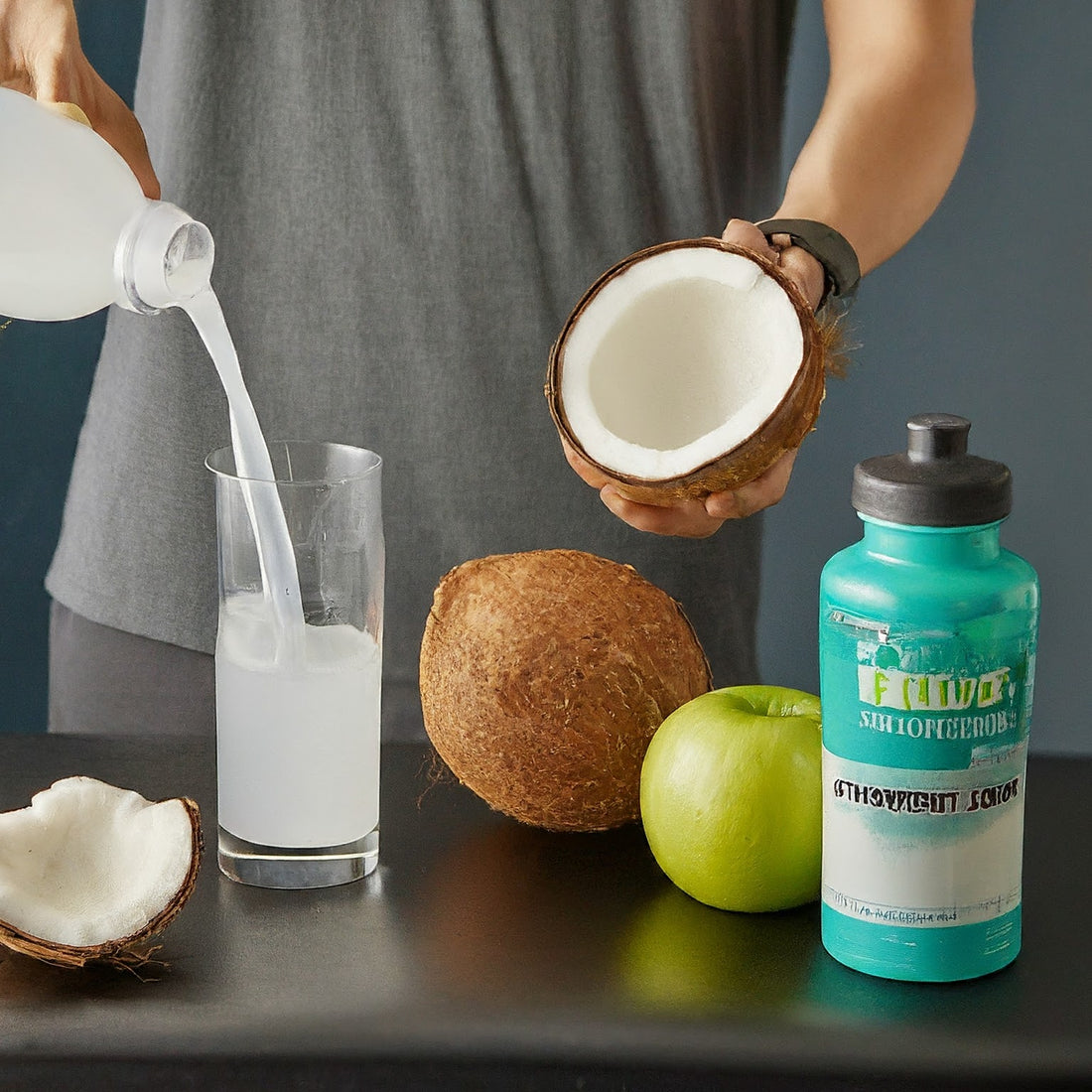
Coconut Water: Nature's Electrolyte Powerhouse, or Just Hype?
Share
Coconut water. It's everywhere, from trendy cafes to celebrity Instagram posts. But beyond the hype, does it truly live up to its reputation as a natural sports drink packed with electrolytes? Let's crack open the science and see if coconut water truly quenches your thirst for performance.
Electrolytes 101:
First things first, what are electrolytes? These essential minerals, like sodium, potassium, and magnesium, are like tiny spark plugs in your body. They power nerve impulses, regulate muscle contractions, and help you stay hydrated. When you sweat, you lose electrolytes, leading to fatigue, cramps, and even dizziness. That's where sports drinks come in, replenishing those lost electrolytes to keep you going.
Coconut Water: Nature's Sports Drink?
Coconut water boasts a natural electrolyte profile, containing:
- Potassium: More than a banana per serving, crucial for muscle function and nerve transmission.
- Magnesium: Supports muscle relaxation and recovery, preventing cramps.
- Sodium: Contrary to popular belief, essential for proper hydration and nerve function.
Sounds great, right? But here's the catch:
- Lower sodium: Compared to traditional sports drinks, coconut water falls short in sodium content. Dr. Huberman, a renowned neuroscientist, emphasizes sodium's importance for peak performance.
- Variable sugar content: Sugar levels can vary depending on the coconut's maturity, making it less predictable. While some prefer less sugar, it may lack the energy boost needed for intense workouts.
- Not as readily available: Finding fresh young coconuts can be tricky, and store-bought varieties often come pasteurized, impacting nutrient content.
So, is coconut water a complete bust? Not necessarily. It offers a natural source of electrolytes, especially potassium, and is a refreshing way to hydrate. But for optimal performance, especially during intense workouts, it might not be the solo answer.
Beyond the Coconut:
Consider these options for a more balanced electrolyte punch:
- Electrolyte-infused beverages: Formulated with optimal ratios of sodium, potassium, and magnesium, addressing the shortcomings of coconut water.
- Electrolyte tablets: Portable and convenient, they dissolve in water for a quick electrolyte boost.
- Coconut water combined with electrolyte powders: This DIY approach allows you to personalize your electrolyte intake based on your needs.
Remember:
- Electrolyte needs vary depending on activity level, sweat rate, and individual differences. Listen to your body and adjust your intake accordingly.
- Water is still key! Coconut water and electrolyte drinks are not replacements for plain water, especially during prolonged activity.
The Bottom Line:
Coconut water has its place, but don't rely solely on it for peak performance. Explore different options, find what works best for you, and stay hydrated to unlock your full potential. Let's move beyond the hype and embrace smart hydration for a truly winning performance!

